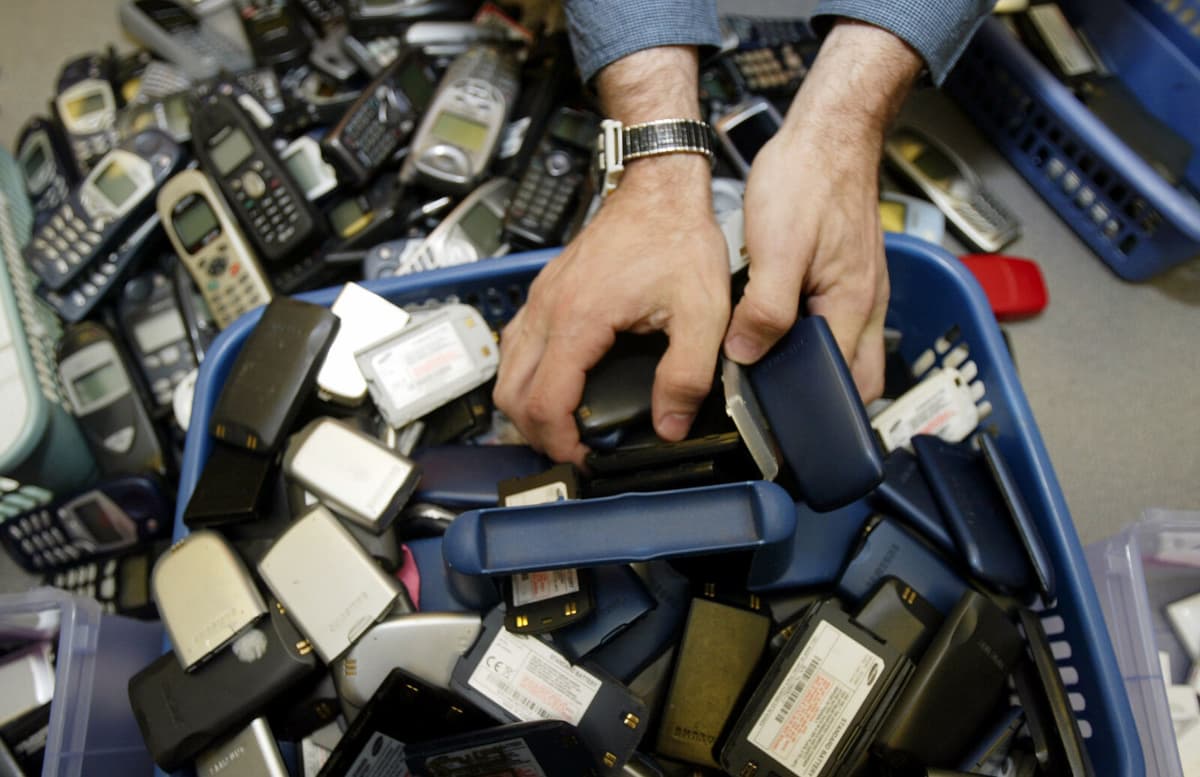It's not a little small electronics we have lying around at home, despite phones and computers containing valuable metals and other materials that can be reused. In the investigation into the deposit system for small electronics in 2021, it was estimated that there are 20-25 million phones, of which only half are functional.
The main reason people don't hand over their phones, tablets, and laptops, even though they don't work, is the fear that personal information on them will fall into the wrong hands.
That's my impression too, that people are just too scared, says Mårten Sundin, marketing and communications manager at El-Kretsen, one of the two collection systems authorized to collect small electronics.
No problem
Then, private individuals don't really see it as a big problem to let them lie around in their drawer. And that becomes a problem for us, because then we don't get them.
Recipo, which also collects small electronics, has developed a secure collection container. The containers are locked and only opened at the recycling company, where all personal data is erased. Similar projects are underway, for example, in the City of Stockholm.
But the skeptics are not convinced. Many claim that it is virtually impossible to erase everything on a computer or phone.
That's a myth, says Johannes Olegård, a doctoral student in IT forensics at Stockholm University.
A technically interested private individual can remove almost all valuable information, he explains.
It's usually possible to erase everything, but you need to be a bit knowledgeable, and I understand why people are a little scared.
Often encrypted
Modern phones are often encrypted, and if you reset them to factory settings, you change the encryption key.
Usually, that's enough, but then there's still encrypted data left. If you really want to get rid of it, you fill it with junk after resetting the factory settings and reset it again.
A computer is a bit trickier.
You can't just wipe a hard drive without writing over it with zeros, and that can be a bit tricky for a private individual.
If you're not that knowledgeable, it's clearly easier to hand it over to a company.
Even if an IT forensic expert can recover most of the data, it's questionable whether an ordinary private individual has information valuable enough to make it worth the effort to try to access it.
For those who are still worried, Mårten Sundin recommends handing it over to stores or others who collaborate with actors who reuse used IT equipment.
You can ask the question and check yourself that the ones who are going to take care of the product use an approved security standard that erases memory. Then it's guaranteed that no sensitive information is left in the products.
There are approximately 20-25 million unused mobile phones in Swedish homes.
According to the WEEE Forum, there are around 700 million mobile phones in European households that are not used or do not work.
An average European home contains, in addition to lamps, 74 different electrical products. Of these, nine are not used although they work, and four are broken.
Source: WEEE Forum, Investigation into the deposit system for small electronics (SOU 2021:26)






